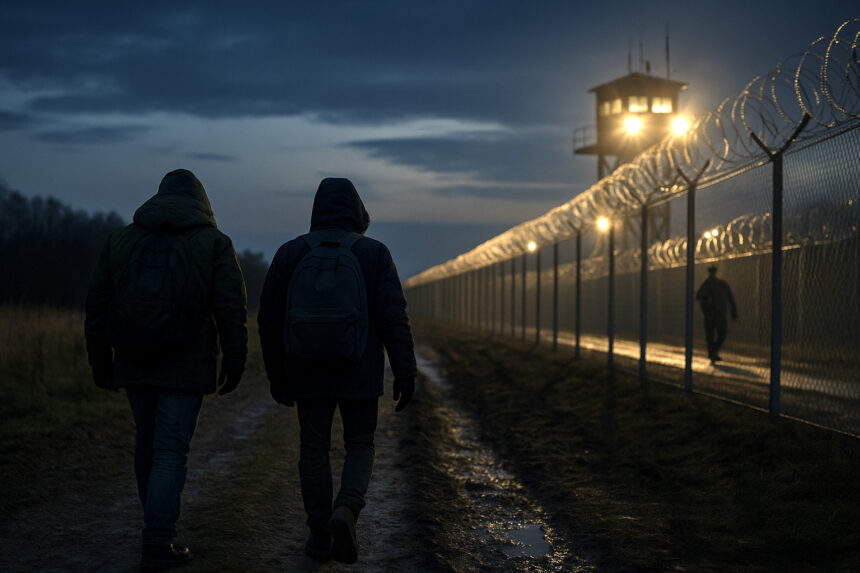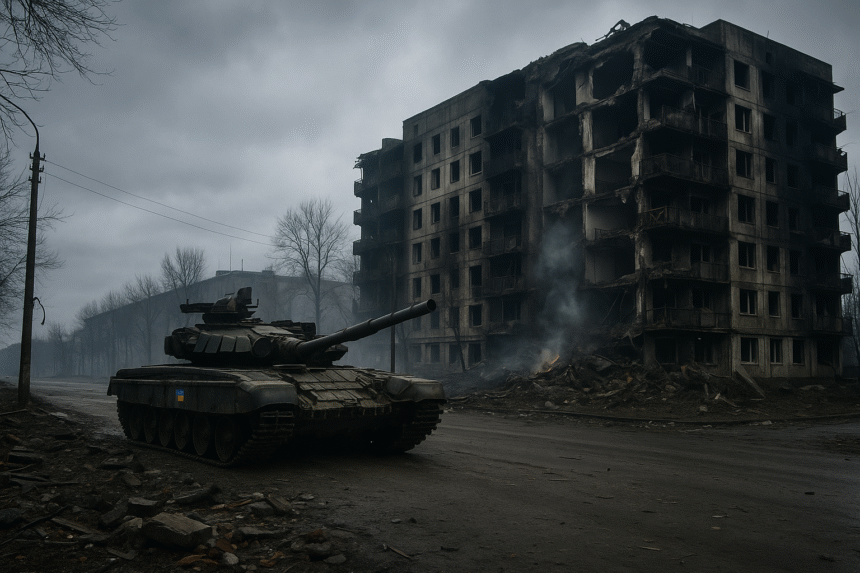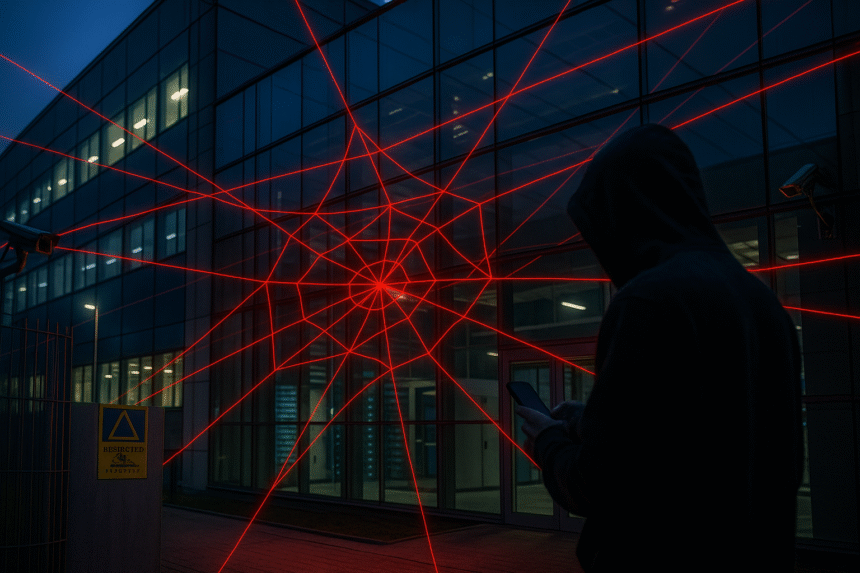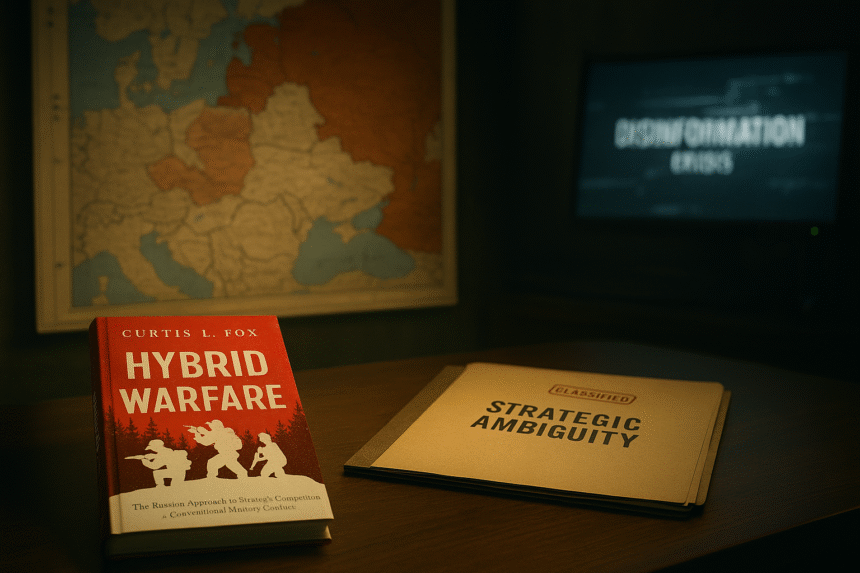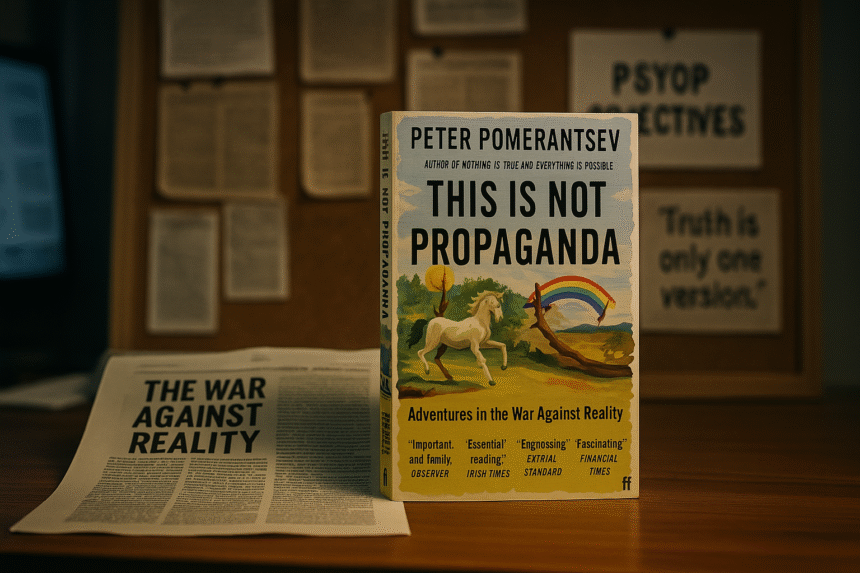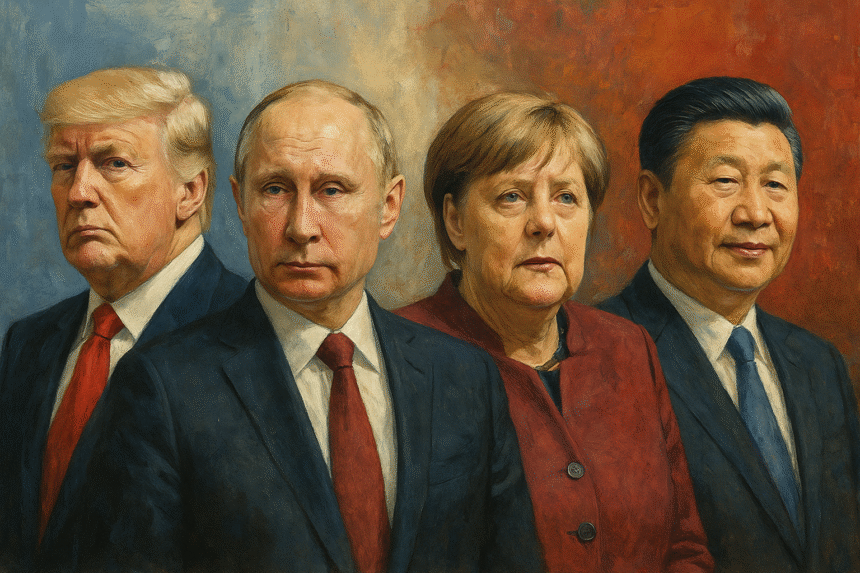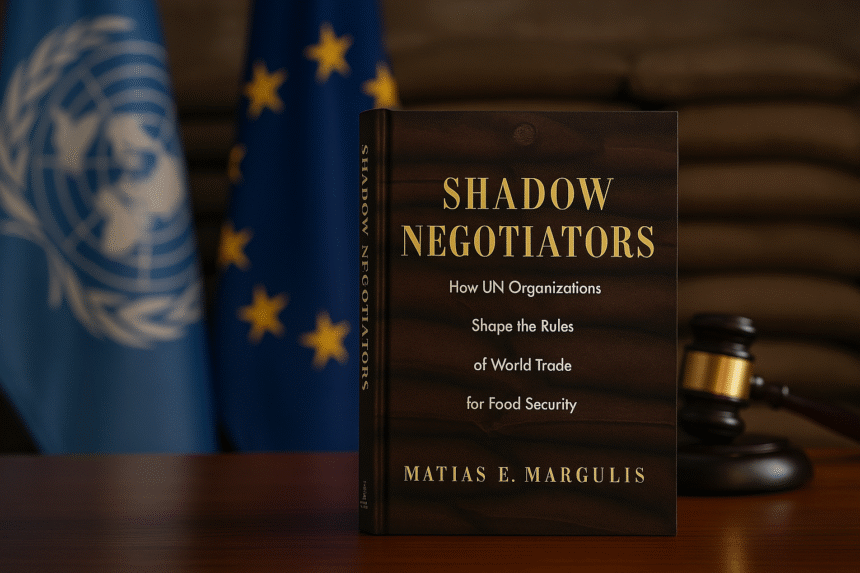There is always a danger… You become an expensive and problematic journalist. In an era when the newspaper business model remains broken and oligarchs are amassing more and more wealth, this inequality of arms is extraordinary.”
– Tom Burgis, after defeating a SLAPP suit
The Courtroom as a Weapon
The most effective way to kill a story in Britain isn’t with bullets — it’s with barristers. Across London’s law offices, a quiet industry thrives: elite firms defend the reputations of billionaires, oligarchs, and foreign power-brokers by threatening anyone who dares to expose them. Investigative journalists, from Fleet Street to freelance independents, now fight not in war zones, but in courtrooms — drowning in paperwork, facing constant writs, and absorbing crippling legal costs from libel laws cases.
A country that once championed press freedom now invites the world’s autocrats and plutocrats to launder reputations and silence dissent. Wealthy actors exploit the libel system, transforming it from a shield into a sword. They use that system to convert the rule of law into a tool of censorship. This shift did not happen by mistake. It reflects a deliberate strategy. This is lawfare. And Britain sits at its epicentre.
1. The Legal War on Truth
The weaponisation of law to silence journalists now poses a direct threat to democracy and transparency. Across the world — especially in Europe — influential individuals and corporations exploit legal systems to suppress dissent, intimidate investigative reporters, and conceal corruption.
In the UK, lawmakers and regulators have enabled plaintiff-friendly libel laws and failed to erect strong safeguards against abusive lawsuits. As a result, London has become a global hub for legal intimidation (🔗). Oligarchs, authoritarian states, and wealthy elites deliberately choose British courts to file Strategic Lawsuits Against Public Participation (SLAPPs) and defamation claims — not to seek justice, but to harass critics through costly, time-consuming litigation.
This report traces how UK libel law and other legal mechanisms have evolved into tools for stifling investigative journalism. Russian billionaires and Gulf power-brokers increasingly target reporters in London, while parallel SLAPP cases emerge in Malta, France, and Slovenia.
We investigate the political economy behind this trend — particularly the role of regulatory capture — and present reform proposals from legal scholars, journalists, and free-speech advocates (including Index on Censorship, ARTICLE 19, and the OSCE) who aim to defend public interest journalism against lawfare.
2. London: The Libel Capital of the World
For decades, England’s libel courts have served as a favoured forum for reputation-sensitive elites — a phenomenon known as “libel tourism.” Until recently, defamation claimants in the UK held significant advantages: courts treated allegations as false unless defendants proved them true, rarely summoned juries, and placed the burden of proof on publishers to justify their reporting.
Sky-high legal costs and the “loser pays” rule further skewed the system, enabling wealthy plaintiffs to threaten critics with financial ruin. London attracted a global influx of libel claims — even those with weak connections to England — precisely because English law rewarded claimants.
2.1. Systemic Vulnerabilities and the Libel Industry
Despite the 2013 reform that required foreign claimants to prove England as the most appropriate forum (🔗), the UK’s legal system still offers rich and powerful actors ample opportunity to exploit it. British law firms routinely serve the interests of global elites, fueling an expanding industry of legal intimidation.
A 2020 survey across 41 countries showed that UK-based actors issued 31% of all legal threats against journalists, far more than any other country (the EU accounted for 24%, and the US just 11%) (🔗). London’s courts now enable SLAPPs to flourish — aggressive lawsuits designed to intimidate and exhaust journalists who investigate the public interest. One media lawyer put it bluntly: “British law firms have a reputation for muscling in on journalists and silencing critics with the threat of ruinous court action” (🔗)
2.2. Presumed Guilty: Burden of Proof and the Chilling Effect
The UK’s libel regime, long tilted in favour of plaintiffs, places the burden on defendants to prove their innocence (🔗). Even when journalists prove the truth of their reporting, the legal process itself — often spanning years and incurring costs of six or seven figures — delivers the punishment. Legal fees and psychological pressure drain journalists, small media outlets, and publishers, regardless of the final verdict.
This dynamic deters scrutiny of the wealthy. Reporters must constantly assess the risk of a financially devastating lawsuit before deciding to publish. The House of Commons Library noted that these cases have a “chilling effect on freedom of expression,” prompting journalists and critics to self-censor under the looming threat of legal retaliation. A single aggressive legal letter from a London firm — even without filing suit — can intimidate editors into steering clear of specific topics, fearing the legal “guillotine” suspended above them (🔗).
2.3. Lawfare as a Service: Rogue Lawyers and Reputation Laundering
Libel lawfare poses an existential threat to investigative journalism. Nowhere does this dynamic manifest more starkly than in the UK, where a cottage industry of lawyers, reputation managers, and private investigators serves the super-rich “enemies of the truth.” London’s most aggressive libel firms — often charging premium rates for defamation and privacy cases — operate as enforcers for corrupt clients, actively bullying and bankrupting journalists (🔗).
Until recently, sanctioned Russian oligarchs routinely hired British lawyers to pursue critics. In one extreme case, the UK government issued a legal waiver that let attorneys bypass sanctions and represent Yevgeny Prigozhin — the Kremlin-linked oligarch and Wagner mercenary chief — in a libel suit against a British journalist. Regulators failed to block this abuse, effectively allowing foreign kleptocrats to hijack the UK legal system and suppress public interest reporting (🔗).
“The firm sought to cripple her financially with libel action in UK courts… Had our mother not been murdered, they would have succeeded.”
– Matthew Caruana Galizia, son of slain Maltese journalist Daphne Caruana Galizia.
3. Oligarchs, Elites and Corporations Versus Journalists: Case Studies
High-profile cases in recent years have thrown a spotlight on how foreign oligarchs, corporate tycoons, and authoritarian officials exploit UK laws to target journalists. These cases reveal a clear pattern: immensely wealthy non-UK individuals or entities are exposed by investigative reporting, then launch legal salvos in London to derail investigations and silence further coverage. Below, we examine a few emblematic battles:
3.1. Catherine Belton and the Oligarch Onslaught
In 2021, Catherine Belton, a former Financial Times journalist, faced an onslaught of five libel lawsuits targeting her book, “Putin’s People,” which investigated Kremlin influence and oligarchic networks. Russian billionaires Roman Abramovich, Mikhail Fridman, Petr Aven, and the oil giant Rosneft all filed claims (🔗).
Belton reported, among other allegations, that Abramovich purchased Chelsea FC at Vladimir Putin’s behest — a claim Abramovich strongly denied. London’s High Court turned into a lawfare battleground. Although Belton and her publisher, HarperCollins, defended the book, the barrage of lawsuits drained resources and escalated pressure. Confronted with rising legal costs, HarperCollins chose to settle Abramovich’s claim, agreeing to minor textual changes and a charity donation before the case reached trial (🔗).
Analysts identified Belton’s ordeal as a textbook example of SLAPP tactics. Russian oligarchs leveraged UK courts to intimidate a journalist scrutinising their Kremlin ties. Several individuals who sued Belton later appeared on UK sanctions lists after Russia invaded Ukraine in 2022, confirming the public value of her reporting (🔗).
3.2. Tom Burgis and the Cost of Winning
Tom Burgis, a Financial Times journalist and author of Kleptopia: How Dirty Money is Conquering the World, confronted a major SLAPP-style libel suit from Eurasian Natural Resources Corporation (ENRC), a mining conglomerate with holdings in Kazakhstan and Africa.
Burgis exposed allegations of corruption, money laundering, and suspicious deaths tied to ENRC’s operations. ENRC responded by suing Burgis, the FT, and HarperCollins in London, arguing that the reporting suggested the company orchestrated the murder of former insiders (🔗).
The High Court rejected ENRC’s claims in March 2022, and the company ultimately withdrew the case. Still, Burgis paid a steep price for the legal battle. “There is money that will not be got back that could have been spent on other books,” he said, pointing to the toll in time, resources, and lost opportunities. Even after defeating a SLAPP, Burgis warned, “you become an expensive and problematic journalist” — a label that may influence editors when assigning stories or hiring staff (🔗).
3.3. Eliot Higgins vs Yevgeny Prigozhin: Sued by a Sanctioned Mercenary
In late 2021, Yevgeny Prigozhin — a sanctioned Russian oligarch and founder of the Wagner Group — filed a libel suit in London against Eliot Higgins, founder of Bellingcat. The case focused on Higgins’ tweets linking to Bellingcat investigations into Wagner’s paramilitary activity and Prigozhin’s Kremlin ties.
Although sanctions applied at the time, Prigozhin’s lawyers at Discreet Law secured a UK government waiver to bypass financial restrictions and proceed with the suit. Leaked documents later revealed this exemption.
Prigozhin targeted Higgins personally, not Bellingcat, and focused on tweets accessible within the UK — a tactical move to bring the case under English libel law. Prigozhin later bragged about suing journalists “as a sport,” confirming his intention to intimidate rather than correct the record.
After Russia’s 2022 invasion of Ukraine, the court struck out the claim and imposed additional sanctions. However, Higgins still faced over £70,000 in legal expenses — despite the case never reaching trial. The incident contributed to the 2023 legal reforms, which now prohibit sanctioned individuals from exploiting British courts to sue (🔗).
3.4. Gulf Influence and Domestic Enablers
This abuse of UK law extends beyond Russian oligarchs. Gulf elites, political power brokers, and British millionaires all follow the same playbook.
Mohammed Dahlan, an exiled Palestinian politician with close ties to the UAE, filed a defamation suit in the UK against Middle East Eye editor David Hearst after the outlet reported on his alleged involvement in a foreign coup plot. Hearst described the suit as a deliberate attempt to “intimidate and silence” his publication. Dahlan withdrew the claim in 2021 just hours before he would have had to submit evidence, but only after Middle East Eye had spent months and significant resources building its defence (🔗).
British financier Arron Banks also turned to the London courts, suing journalist Carole Cadwalladr over her reporting on his alleged links to Russia. Cadwalladr prevailed on public interest grounds but endured years of legal pressure, raised £600,000 through crowdfunding, and nearly bankrupted herself to survive the ordeal (🔗).
These cases confirm the core issue: UK libel law provides a customised weapon to anyone with sufficient means, regardless of nationality or motive. Gulf monarchs, Kremlin insiders, or domestic political donors all achieve the same outcome: they weaponise the process itself to punish and deter scrutiny.
3.5. Strategic Chilling: How Lawfare Distorts the Media Ecosystem
These lawsuits have steadily corroded media freedom. Each case delivers a clear warning: investigate the rich and powerful, and you will risk years in court and crippling legal bills. Journalists across the UK describe a climate thick with caution. Editors now weigh legal exposure before they approve even the most rigorously sourced investigations.
As Tom Burgis warned, “fear of legal threats is as damning as the threats themselves. Like the guillotine in revolutionary France, it hovers overhead” (🔗). This fear drives pre-emptive editorial censorship. Newsrooms drop sensitive stories — especially those involving foreign wealth or state-linked actors — long before journalists begin to write them.
3.6. Legal Architecture for Hire: Regulatory Capture in Practice
Britain’s oversight bodies failed to act swiftly against this systemic abuse. For years, regulators issued no meaningful disciplinary action against law firms that enabled SLAPPs. Some firms grew wealthy by serving oligarchs and foreign clients repeatedly, building a business model that rewarded legal harassment.
This behaviour reflects classic regulatory capture: institutions meant to defend justice instead serve those they are intended to restrain. As MP Liam Byrne warned in Parliament, “British courts have become the jurisdiction of choice for the world’s kleptocrats,” eroding national sovereignty and destroying the UK’s moral credibility (🔗).
4. SLAPPs Across Europe: Malta, France, Slovenia and Beyond
The phenomenon is not confined to one legal system or jurisdiction. In Malta, France, Slovenia, and across the continent, SLAPPs exploit a range of mechanisms — from civil defamation and privacy laws to criminal libel statutes and jurisdictional manipulation. While the contexts vary, the strategy remains the same: use the courts to punish dissent and protect entrenched power.
4.1. Malta: Daphne Caruana Galizia and the Courtroom Gauntlet
Investigative journalist Daphne Caruana Galizia spent years exposing corruption within Malta’s government and business networks — and eventually paid the ultimate price with her life. A car bomb killed her in October 2017 while she battled 47 civil and criminal defamation suits. Maltese officials and businessmen had filed most of them. These lawsuits followed classic SLAPP logic: intimidate, overwhelm, and financially destroy the target (🔗).
In the months leading up to her death, Daphne received legal threats from Mishcon de Reya — a London-based law firm acting on behalf of Henley & Partners, the controversial “passport-for-sale company.” The firm threatened her with a libel suit in the UK unless she retracted several articles. This move appeared designed to intimidate her with the prospect of a costly foreign trial. “The firm sought to cripple her financially with libel action in UK courts,” her sons later stated. “Had our mother not been murdered, they would have succeeded”(🔗).
Even after her assassination, some claimants kept their lawsuits alive and forced her family to defend her estate. Daphne’s ordeal galvanised public awareness. European watchdogs named her “the most targeted journalist by SLAPPs” across the continent. Malta responded by repealing criminal libel laws and began debating broader anti-SLAPP measures. But her case still stands as Europe’s most harrowing warning of how unchecked legal warfare can end in lethal violence (🔗).
4.2. France: Vincent Bolloré’s Legal Blitz Strategy
In France, billionaire Vincent Bolloré has gained notoriety for launching aggressive legal assaults against journalists and NGOs investigating his vast business empire. Since 2009, Bolloré and his subsidiaries (such as Socfin) have filed more than 20 defamation lawsuits in France and abroad (🔗), targeting those who reported on corruption, land grabs, and environmental damage linked to his operations in Africa (🔗).
His firm attacked major outlets like Le Monde and Mediapart, alongside groups such as Greenpeace and ReAct, often pursuing litigation in multiple jurisdictions simultaneously. Although these lawsuits rarely succeeded in court, they served their function: to bury scrutiny under the weight of legal pressure. French media labelled Bolloré an “expert in SLAPPs” for using the judiciary as a blunt instrument against dissent (🔗).
Meanwhile, Bolloré acquired increasing control over French media, including Canal+ and several television networks, raising alarms about the convergence of litigation and ownership as dual tools to silence critics. In 2022, dozens of French outlets issued a joint statement: “Bolloré’s SLAPP lawsuits will not silence us!” This coordinated stand accelerated national demands for robust anti-SLAPP legislation, with Bolloré emerging as the emblematic figure driving the reform agenda (🔗).
4.3. Slovenia: Necenzurirano and State-Orchestrated Intimidation
Slovenia witnessed one of Europe’s most concentrated SLAPP offensives in 2020, when investigative outlet Necenzurirano faced 39 lawsuits within two months (🔗). Rok Snežič—a convicted tax adviser and close associate of then-Prime Minister Janez Janša—filed 13 criminal defamation complaints against each of the outlet’s three journalists. He aimed to silence their reporting on his alleged illegal financing of Janša’s party.
Despite Snežič’s record of convictions for fraud and money laundering, he escalated a legal siege that drained the journalists’ time, resources, and morale. Press freedom groups condemned the campaign as one of the EU’s most blatant examples of SLAPP abuse, warning that Snežič had hijacked judicial mechanisms to suppress investigative journalism.
The broader political environment deepened the threat. Janša’s administration promoted a hostile media climate, with the prime minister himself amplifying attacks on Necenzurirano through Twitter while Snežič executed the legal barrage. This convergence of political power and private litigation demonstrates that SLAPPs in Europe often emerge from coordinated state-linked efforts, rather than isolated elite aggression. In response, civil society intensified demands to repeal Slovenia’s criminal defamation laws and to enshrine robust anti-SLAPP protections into national legislation (🔗).
4.5. A Continental Pattern: Legal Architecture Turned Against Democracy
Cases from Malta, France, and Slovenia—alongside others from Italy, Poland, Croatia, and beyond—demonstrate that SLAPPs operate as a pan-European threat. Powerful actors exploit varying legal tools, including civil libel, criminal defamation, and privacy laws, to suppress scrutiny and intimidate those who expose misconduct. Although the statutes differ by jurisdiction, the underlying tactic remains consistent: weaponise the law to silence dissent (🔗).
These lawsuits distort democratic life by forcing journalists to self-censor, shielding corruption from exposure, and denying the public access to vital information. The OSCE’s media freedom office has repeatedly warned that SLAPPs pose a systemic danger. It calls on governments to eliminate criminal defamation laws, fast-track the dismissal of frivolous claims, and reject foreign libel rulings that contravene European free speech standards (🔗).
Daphne Caruana Galizia’s murder triggered an institutional reckoning across the EU. In response, Members of the European Parliament and civil society actors launched the Coalition Against SLAPPs in Europe (CASE). The European Commission followed with a draft Anti-SLAPP Directive that would empower courts to swiftly strike down unfounded legal actions targeting public interest speech and penalise claimants who abuse the process.
France and Italy have entered formal debates on national anti-SLAPP measures. Malta and Ireland are evaluating potential reforms. Yet across Europe’s democracy sector, consensus has hardened: legislators must act decisively to prevent hostile interests—whether state-linked or private—from turning Europe’s own legal architecture against its journalists (🔗).
5. The Political Economy of Legal Intimidation and Regulatory Capture
Behind every SLAPP suit stands more than just a litigious billionaire or corrupt official; it reveals an entire ecosystem. The weaponisation of law against journalists depends on a broader architecture built on regulatory failure, institutional inertia, and financial incentive. In both the UK and Europe, this architecture did not emerge by accident.
Legal systems begin to serve repression, not accountability, when power and capital align to exploit them. This section examines how this convergence operates through elite law firms, compromised regulators, reputation management networks, and political complicity.
5.1. Elite Capture of the Legal Profession
A sobering truth lies at the core of legal weaponisation against the press: money and power capture supposedly impartial systems and redirect them to serve private interests. In the realm of SLAPPs and libel tourism, this capture becomes most visible in how wealthy elites co-opt the legal profession.
Top-tier law firms — especially in London — aggressively protect a lucrative status quo. Many built entire business models around shielding the reputations of oligarchs, corporations, and political actors facing public scrutiny. These firms actively enable oligarchic lawfare, pursue critics with legal threats, and avoid meaningful oversight.
Regulators have allowed this system to persist. The Solicitors Regulation Authority repeatedly ignored misconduct by firms that orchestrate SLAPPs, even when evidence showed abuse of legal process or clear attempts to intimidate journalists (🔗). One revealing case involved English PEN — a charity committed to free expression — which appointed a Mishcon de Reya partner to its board. At the same time, Mishcon lawyers threatened Daphne Caruana Galizia with libel action. Her family publicly condemned the move, highlighting how deeply elite circles had normalised SLAPP culture — even within organisations that claim to defend journalistic freedom (🔗).
5.2. Legal Tourism as an Economic Model
Professional capture represents only one layer; beneath it lies a broader political economy of legal intimidation. The UK’s plaintiff-friendly defamation regime has attracted a global clientele, making London a magnet for libel tourism—a system where actors treat legal processes as exportable commodities (🔗).
Foreign oligarchs and corporate interests deliberately use English courts to launder reputations. British law firms, PR agencies, and even judicial institutions benefit financially from this influx. These stakeholders develop vested interests in maintaining the status quo. The resistance to reform stems not only from cultural norms but also from financial incentives. If lawmakers imposed stricter libel standards or enacted anti-SLAPP protections, they would undermine London’s global attractiveness as the preferred forum for strategic legal suppression.
Analysts have identified this system as a reputational laundering economy. MP Liam Byrne warned in Parliament that foreign kleptocrats exploit British courts for authoritarian ends and that this practice threatens national sovereignty:
We have failed to stop our courts being used as arenas to silence journalists such as Catherine Belton and Tom Burgis, who are pursuing bad and corrupt companies. Thank God for HarperCollins and Arabella Pike because, frankly, without such brave publishing houses, we would not have the truth brought into the public domain.”
– MP Liam Byrne
5.3. SLAPPs as Financial Censorship
SLAPPs do more than suppress speech in courtrooms — they reshape the financial landscape of investigative journalism itself. In an era where public-interest reporting already operates on limited resources, a single ruinous lawsuit functions as a form of pre-emptive censorship.
These suits inflate the cost of seeking the truth. Legal threats force newsrooms to hesitate before approving future investigations. Freelance journalists, often working without institutional protection, confront an even sharper deterrent. As one editor at Index on Censorship put it:
Do you meet with the whistleblower whose story might land you a Pulitzer, but also might land you in court?”
– Jodie Ginsberg, Index on Censorship
This logic transforms journalism from a public good into a legal liability. Instead of encouraging scrutiny, the system incentivises avoidance. Journalists withhold stories. Corruption persists. And the public loses access to vital information about elite misconduct — not because anyone bans it, but because fear erases it (🔗).
5.4. Political Complicity and Legislative Stagnation
Regulatory capture extends deep into legislatures. In many European countries, lawmakers still uphold outdated defamation laws, with some retaining criminal penalties for libel. For years, most jurisdictions failed to enact anti-SLAPP procedures, despite the escalating prevalence of legal abuses.
This inertia reflects design, not neglect. Politicians and government actors often exploit the same legal tools as private elites. In Slovenia, state prosecutors pursued journalists using criminal defamation laws. In Malta, the Prime Minister filed a defamation suit against Matthew Caruana Galizia after the murder of his mother, continuing the tactics that silenced her (🔗).
These patterns expose a more profound truth: lawmakers preserve SLAPP-enabling frameworks to shield themselves. If they do not directly weaponise these laws, they fear the powerful interests that do.
5.5. Momentum for Reform: Civil Pressure and Political Realignment
Despite the deeply embedded system, civil society pressure now drives institutional change. Public outrage after Daphne’s murder — alongside the UK’s “Dirty Money” scandals and the Russia sanctions regime — shattered the illusion of legal respectability around SLAPPs.
In the UK, cross-party MPs, including David Davis and Dominic Raab, have called for robust anti-SLAPP legislation (🔗). They framed lawfare not only as a threat to media freedom but as a danger to national security:
“In an age of increasing financial vulnerability in the news industry, it is all too easy for such abusive legal tactics to shut down investigations and block accountability.”
– Coalition of Editors, Journalists, Publishers and Media Lawyers.
This pressure has produced real momentum. Parliament now hosts intensified debates. Lawmakers have begun drafting reforms. Even in jurisdictions long resistant to change, governments now respond to mounting public shame.
The battle remains ongoing. But a critical shift has begun: campaigners have dragged the architecture of silence into the light. Legal actors once treated as untouchable now face direct scrutiny. The foundations of regulatory capture no longer rest unquestioned.
6. Fighting Back: Reform and Recommendations
The weaponisation of law to silence journalists no longer operates in the shadows. Legislators, civil society groups, and legal experts now openly recognise it as a strategic threat to democratic accountability. In response, a growing coalition across the UK and Europe has begun advancing reforms aimed at dismantling the legal frameworks that enable SLAPPs (🔗). These efforts include legislative proposals, judicial training programmes, strengthened public-interest defences, and cross-border coordination mechanisms. The following analysis examines the most consequential initiatives, highlights their limitations, and outlines the strategic risks that remain.
6.1. UK Momentum: Anti-SLAPP Legislation and Systemic Reform
In the UK, the long-delayed campaign to legislate against SLAPPs has finally secured political momentum. After years of advocacy, the government launched a formal consultation in 2022 and pledged action in response to mounting public concern over oligarchic lawfare. By 2024, Parliament advanced the Strategic Litigation Against Public Participation Bill with bipartisan support and endorsement from the Ministry of Justice (🔗).
The bill establishes several key safeguards:
- Judges can now dismiss meritless claims early in the process, preventing protracted proceedings.
- Claimants must, in some cases, prove actual malice or demonstrate intent to cause harm.
- Journalists gain cost protections that prevent them from bearing their opponents’ legal fees, even in cases they do not win.
Lawmakers had already addressed foreign corruption-linked SLAPPs through the 2023 Economic Crime Act. The new bill broadens these protections across all areas of public interest, making the UK the first country to attempt a fully comprehensive anti-SLAPP regime. Free-speech advocates have welcomed the legislation but stress that its success will depend on how rigorously judges apply the new tools. As Index on Censorship noted:
“These reforms can’t come fast enough to starve the law firms that have grown fat on oligarchs’ money.”
6.2. European Union Action: Toward a Unified Defence
The European Commission proposed an EU Anti-SLAPP Directive in 2022, and the European Parliament endorsed it throughout 2023 and 2024 (🔗). The directive obliges all member states to implement:
- Early dismissal mechanisms for abusive claims
- Compensation frameworks for SLAPP targets
- Penalties for claimants who pursue litigation in bad faith
In parallel, the Commission issued a non-binding Recommendation urging member states to train judges, expand legal aid, and reject enforcement of foreign judgments from jurisdictions hostile to free expression — an approach modelled on the U.S. SPEECH Act.
The Council of Europe reinforced this push in 2023 by releasing its own Recommendation, which called on states to apply “exemplary sanctions” against those who initiate SLAPPs. These efforts together reflect a coordinated European strategy to align legal systems with democratic norms. Policymakers now recognise SLAPPs not as isolated legal distortions, but as a strategic method of repression spreading across the continent.
6.3. Dismantling Criminal Libel Statutes
Legal reform must address the archaic legacy of criminal defamation laws, which remain in effect in several European jurisdictions. These laws impose jail time or criminal penalties for speech, giving governments and political elites powerful tools to suppress dissent.
The OSCE and ARTICLE 19 have repeatedly urged states to fully decriminalise defamation, highlighting cases in Slovenia, Poland, and Croatia where public officials used criminal complaints to silence journalists. Ireland eliminated these laws in 2009, and Malta followed in 2018. However, many other countries have refused to act.
Current reform efforts promote civil-only defamation frameworks, bolstered by anti-SLAPP (Strategic Lawsuit Against Public Participation) protections. The objective is not merely legal modernisation — it is to disarm the institutional tools long used to punish critical journalism and crush public scrutiny.
6.4. Strengthening Public Interest Defences
A recurring flaw in existing defamation regimes lies in the weakness of public interest defences. The UK’s 2013 Defamation Act included such a safeguard, but courts have applied it unevenly. Legal scholars and press freedom advocates argue that journalists who make reasonable efforts to verify stories of public concern should receive legal protection, even when publications contain minor errors (🔗).
To strengthen this framework, reformers have proposed several key measures:
- Forcing claimants to demonstrate reputational harm at an early stage of proceedings
- Raising the standard of proof to actual malice or intent to harm when public figures initiate claims
- Banning corporate plaintiffs from suing unless they can show quantifiable financial damage
These proposals aim to screen out frivolous or tactical suits before they escalate. Some legal commentators, including Geoffrey Robertson KC, have even suggested reinstating jury trials in defamation cases. He argues that jurors may resist elite influence more effectively than judges embedded in professional networks. Although controversial, such proposals underscore growing frustration with the judiciary’s inconsistent application of existing protections.
6.5. Penalising Abuse and Closing Venue Loopholes
Lawmakers must also introduce punitive cost penalties for those who file abusive lawsuits. Courts should gain the authority to impose sanctions or double damages when a case qualifies as a SLAPP. This approach reverses the economic logic: litigants who exploit the legal system should face elevated financial risk, not insulation.
Venue shopping demands immediate reform. However, the UK Defamation Act 2013 (Section 9) aimed to curb libel tourism, but strategic plaintiffs continue to exploit loopholes by suing in London based on minimal connections to the UK.
To eliminate this tactic, legislators could implement stricter statutory tests, such as requiring plaintiffs to prove that their reputation in the UK is damaged to a meaningful extent. At the international level, reform advocates recommend amending the Hague Convention to carve out an exemption for defamation. Others propose a defensive compact among democracies that would block the enforcement of foreign libel rulings designed to suppress protected speech.
6.7. Funding Support and Collective Defence
Beyond legal reform, the fight against SLAPPs demands direct financial and institutional support for those under attack. Groups such as Index on Censorship, Transparency International, and the European Centre for Press & Media Freedom have called for emergency defence funds, dedicated legal aid mechanisms, and coordinated pro bono networks.
The UK Anti-SLAPP Coalition offers a promising model. It brings together legal expertise, monitors repeat litigants, and provides support to freelancers and smaller newsrooms. High-profile cases — including Realid in Sweden — demonstrate how resource gaps pressure smaller outlets to settle or withdraw coverage, even when the reporting remains credible. In response, major media organisations have begun refusing settlement terms that would isolate or financially punish their smaller counterparts.
6.8. Transparency, Stigma, and Professional Codes
Greater transparency around SLAPP tactics and their legal enablers now serves as a preventative force in its own right. UK judges have begun considering the classification of lawsuits as potential SLAPPs from the outset, enabling faster intervention and more precise judicial scrutiny. Reform advocates are also pressing for amendments to professional conduct codes that would compel lawyers to disclose when a case meets SLAPP criteria, or face disciplinary action for failing to do so.
Public stigma has intensified. Law firms that represent authoritarian clients now face growing reputational, legal, and financial pressure. Discreet Law in London collapsed after investigative reporting exposed its work for sanctioned Russian oligarchs. These developments demonstrate a core principle: even when legal reform stalls, sunlight can still function as a powerful disinfectant.
7. Conclusion
The rise of SLAPPs and libel tourism exposes a stark inversion of justice: powerful actors now exploit laws meant to protect reputation to suppress the truth. Across Europe — from Russian oligarchs operating in London to Maltese officials and French billionaires — the pattern remains consistent. They deploy legal systems to harass journalists, bury investigations, and chill public scrutiny. Nowhere was this dynamic more pronounced than in the UK, where plaintiff-friendly defamation laws turned London into the “global libel capital.” Though due to extensive legal reforms following Russias full-scale invasion of Ukraine, and its politicians wishing to distance themselves from the aggressor, the title is shifting towards the US.
Regardless of which countries choose to gain the competitive edge in the libel lawfare industry the legal intimidation of truth tellers by wealthy and corrupt individuals continues to inflict real harm. Investigative journalists stake their financial ruin with every exposé they publish. Some, like Daphne Caruana Galizia, faced unrelenting lawsuits until assassins silenced her for good. In such a system, justice becomes a privilege of the wealthy, and public-interest reporting transforms into personal risk.
But resistance has begun to take root. Journalists have broken their silence. Civil society coalitions now challenge the firms and elites who weaponise the courts. Legislators, under pressure, have started drafting reforms to dismantle the legal machinery of censorship. But only because they faced growing scrutiny. Catalysed by a military invasion.
The mission is clear: disarm the legal tools used to silence journalists. Democracies must adopt anti-SLAPP legislation, reinforce public-interest defences, and build transnational protections. Reform must also target culture, restoring legal norms grounded in transparency, accountability, and critique.
This fight extends beyond press freedom. It reaches the core of the rule of law. When elites can hijack legal systems to shield corruption and repress dissent, democracy ceases to function. Defending journalists from legal assault means defending truth itself — and now is the moment to act.
Stay Ahead of the Curve
Frontline Europa is sustained by readers who want real intelligence, not filtered narratives. To access deeper briefings, early releases, and exclusive field reporting—support us directly:
➤ Subscribe to the Intelligence Brief
Help keep the truth uncensored — support our independent investigations.





